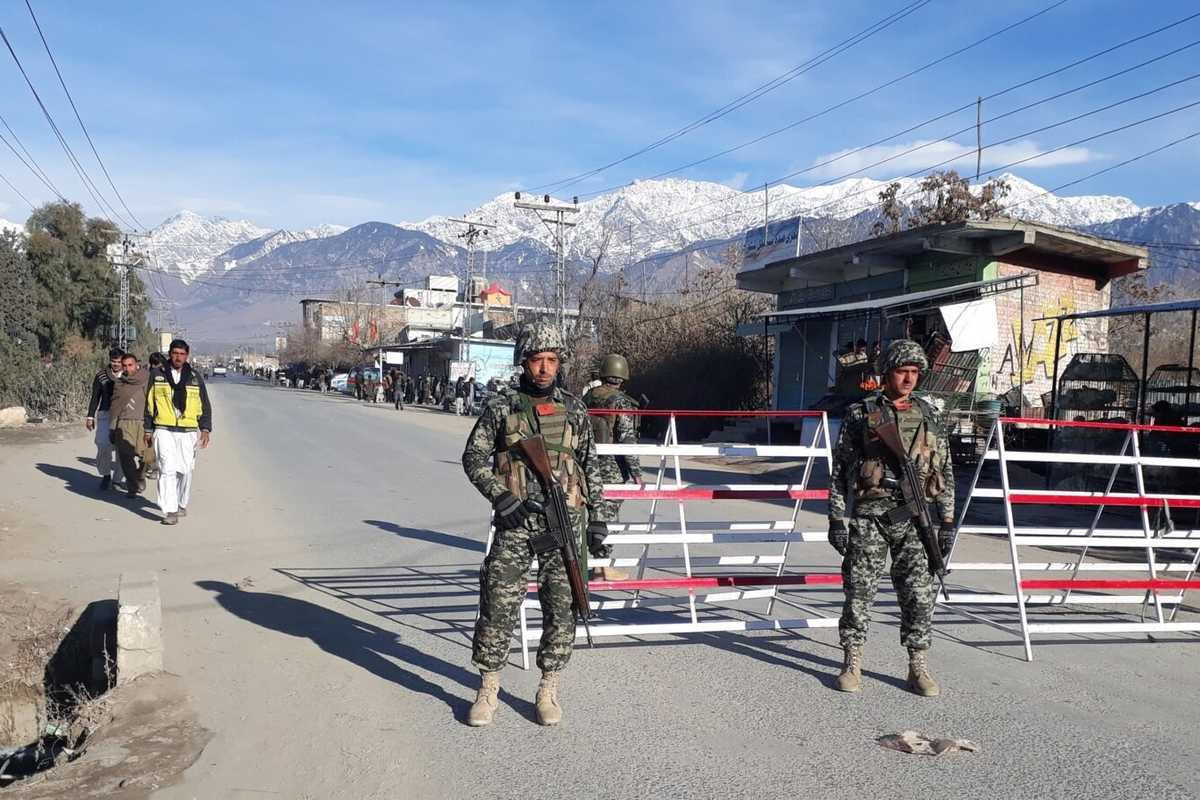Military operation announced in northwest Pakistan after convoy attack
Death toll in Kurram convoy ambush rises to 8; over 17,000 to be temporarily displaced during operation

Kamran Ali
Correspondent Nukta
Kamran Ali, a seasoned journalist from Khyber Pakhtunkhwa, Pakistan, has a decade of experience covering terrorism, human rights, politics, economy, climate change, culture, and sports. With an MS in Media Studies, he has worked across print, radio, TV, and digital media, producing investigative reports and co-hosting shows that highlight critical issues.

The government of Pakistan's northwestern Khyber Pakhtunkhwa province has decided to launch a military operation in Lower Kurram following a series of deadly attacks in the region.
The decision comes as the death toll from an ambush on a relief convoy rose to eight, with nine others injured, further inflaming tensions in the sectarian violence-hit district.
The attack targeted a 35-vehicle convoy transporting essential food supplies to Parachinar, the district's capital. It took place in the Bagan area, marking the second assault on aid convoys this month.
Police recovered the bodies of four drivers identified as Imran Ali, Hassan Ali, Shahid Ali, and Tanveer Abbas, all members of the Shia community.
“The victims were tied up and appeared to have been tortured before being shot dead,” Sadda police told Nukta. The bodies have been shifted to Alizai Hospital, where investigations are underway to confirm the motive behind the killings.
Following the provincial apex committee's decision, a 14-point agreement was signed earlier this month, stipulating that any violation of road safety, including attacks on convoys, would prompt government action against those responsible. Measures include military operations and the temporary displacement of local residents.
Prior to the agreement, the region had been cut off for over three months due to the closure of its main highway, leaving Parachinar isolated and exacerbating the humanitarian crisis.
Displacement and relief efforts
According to a notification issued by the Deputy Commissioner’s Office in Kurram on Friday, law enforcement agencies are planning operations in Bagan, Mandori, Uchat, Charkhel, and Chapri Paraw.
The planned military operation will displace 1,879 families—approximately 17,625 individuals—designated as temporarily displaced persons (TDPs). The displaced families will be accommodated in four proposed sites in Hangu district: Government Boys Degree College, Government Technical College, the Rescue 1122 compound, and the Judicial Building.
A committee led by the Additional DC will coordinate relief efforts. However, the notification noted limited facilities at the proposed sites, with only one location currently equipped with water and washrooms.
Background and peace agreement
Kurram, situated along the Afghanistan border, has been a hotspot of sectarian violence between Sunni and Shia Muslims. Tensions escalated on November 21, 2024, when an attack on a convoy traveling from Parachinar to Peshawar killed 43 people belonging to Shia community. Retaliatory violence claimed over 150 lives, injured 200 more, and shut down the district’s sole highway.
By December 2024, the blockade had led to severe shortages, with local health officials reporting the deaths of 31 children due to a lack of medicine. The crisis triggered nationwide protests, particularly from Pakistan’s Shia community.
On January 1, 2025, the Kurram Grand Jirga finalized a 14-point peace accord aimed at resolving land disputes, disarming private militias, and reopening roads. However, the fragile agreement collapsed after renewed violence, including an attack on the convoy of Deputy Commissioner Javedullah Mehsud on January 4, leaving seven injured.
Ongoing investigations
The recent ambush has raised questions about the government’s ability to ensure security in the volatile district. Local leaders have declared the peace agreement void, blaming authorities for failing to protect convoys.
Officials have reiterated their commitment to restoring order through military action and securing aid routes, but the region’s history of entrenched sectarian divides and unresolved grievances poses significant challenges to lasting peace.
As the crisis in Kurram deepens, the government’s plans for military operations and temporary displacement reflect the gravity of the situation. However, with limited facilities for displaced families and persistent security threats, the path to stability remains uncertain.






Comments
See what people are discussing